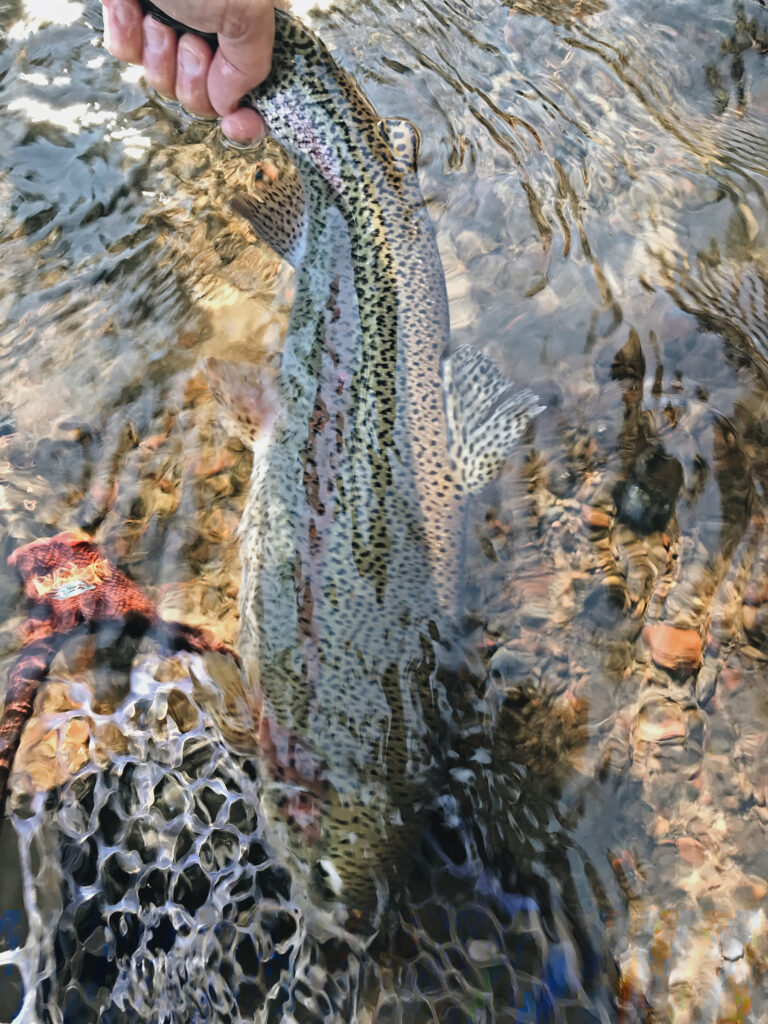Even those with no exposure to the sport of fishing understand from cultural references that fisher-people (what do we say in 2020, I don’t even know) have a shared collection of stories. Stories of nightmare break-offs and “biggest you ever saw” near misses. Stories of rods snapping and stories of dream fish coming to hand. The one that got away, or seven, or twenty.
Another type of lesser-known but often told story are the kind when anglers encounter landowners and local residents. It’s usually not good.
The tension between the two groups is ancient. And the more quality and accessible the water is, the feistier the encounters can be. I’ve fished a wide variety of rivers in the western U.S. and had mostly pleasant, rarely heated conversations with various types of folks. But with a large enough sample size, you encounter some real gems, the worst of which treating you like you personally invited Chevron and Shell to join the Bristol Bay Pebble Mine project.
I also understand their desire to protect what they love and what they perceive as their own. I’ve seen enough styrofoam worm buckets on the banks of River X to know that some people thrash whatever they touch. It only takes a few ignorant jerks to ruin it for all of us.
But I also think that if conservation is in fact a shared goal, then respectful coexisting is possible. It requires both some relational IQ and an awareness of local laws and regs.
An example from recent years:
The Fall River outside Bend, OR is tricky to access because of all the private land, one of the few places I know of in the west where the riverbank residents in some stretches actually do own everything to the mid-line of the river. This is worth mentioning because any and every lucky chap with riverfront property or a backyard that touches the river believes this is true for them, but in 99% of places it is in fact not the case…most private land ownership ends at the high water mark (where ever the water level is when the river is at its fullest).
In what takes third place in my least favorite conversations with a local (it would require firearms to break the top two slots), an old timer tending to his lawn ornaments on the Fall River in OR tried a few zingers on me. Our conversation as I spent about 7 minutes wading along the opposite bank from his property line:
“You can’t park around here without permission.”
Good morning. Yeah, I got permission. Your neighbor, Bonnie, let me park in her driveway.
“Is that right? Hmph…… Well, it’s barbless and catch and release here so you should go.”
Sounds perfect. Just what I like.
(long pause) “Well, I reserve this stretch of river for veterans ONLY. Have YOU served son?!?”
To be clear, I love the idea of blessing veterans with fly fishing experiences. I know a guy that helped found Project Healing Waters for exactly that purpose. But it was in the context of this old fart trying desperate manipulative attempts to get me to leave that he reached for this one, so it felt disingenuous and deceitful at best.
We had this conversation while I was working a small foamline in the middle of the river. Two drifts into the long awkward silence after his inquisition, I caught and released the bruiser below, maintaining eye contact the whole time, ya know, to assert dominance. After it swam away I hiked upstream out of his sight line and away from his porch commentary.

At the end of the day, I understand the old bag of wind. He’s trying to protect something he loves, and I respect that. But none of us get to barricade off stuff that doesn’t belong to us. Maybe more accurately, you don’t get to hoard anything that belongs to all of us. The problem is that “all of us” is a big group and in any big group, you’ll have at least a few self-serving douches that drop their trash, march over the redds, mistreat the fish they don’t intend to keep, and park in front of someone’s driveway. They ruin it for the rest of us.
More direct and winsome self-policing within the community would certainly help. Not at the trade-off of losing what little resources and staffing we have now…I’m not proposing we defund any rangers or departments of wildlife, not ever. But clarity on what rules are going to be enforced helps the back-and-forth, as does those that want to build bridges between the two groups, and not just stake their claim. Most people I know that care about the natural resources are either convinced nothing can be done or don’t know how to talk with others about it without a lot of hostility and confrontation. I have to believe there’s an option other than quitting or slashing tires. If you find yourself in these interactions, let’s aim for the middle.